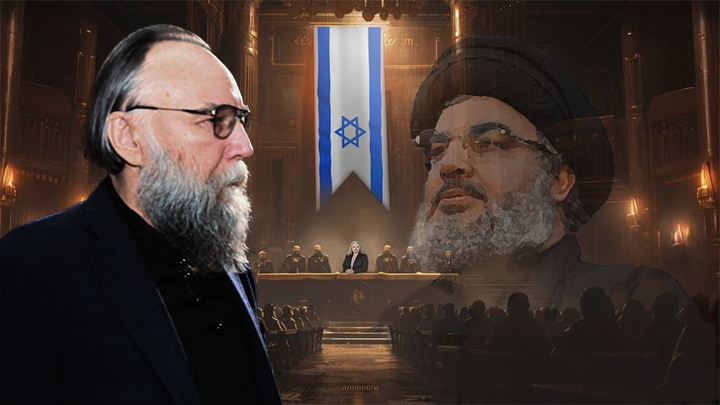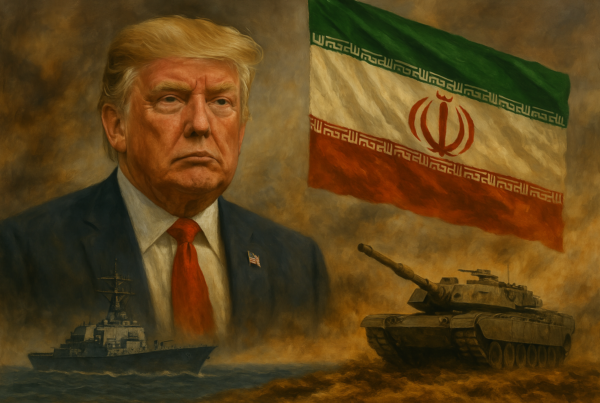The confirmed death of Hezbollah leader Sheikh Sayyed Hassan Nasrallah is a colossal blow to the entire structure of the Axis of Resistance.
The term “Resistance” is used to refer to the most radically anti-Israeli forces in the Middle East. These include, primarily, the Yemeni Houthis (the Ansar Allah movement, which controls the northern part of Yemen), the Syrian forces led by Bashar al-Assad, the Palestinian movement as a whole (primarily Hamas), and the most radical, predominantly Shia, forces in Iraq.
The Axis of Resistance developed under the significant influence of the Islamic Republic of Iran, which was its main pillar. The deceased Hassan Nasrallah, as the leader of Hezbollah, represented the vanguard of anti-Israeli resistance for the entire Islamic (primarily Shia) world. Therefore, the blows that Israel has dealt to Hezbollah in recent weeks, ultimately killing its leader, represent a powerful strike against the entire Axis of Resistance.
Taking into account the relatively recent strange helicopter crash that resulted in the death of Iranian President Ebrahim Raisi, who actively supported the Axis of Resistance, the picture of Israel’s attack on its regional opponents appears truly epic.
Israel, thanks to the support of the collective West and using its latest technological tools (and they have been and remain pioneers in the field of digital technologies), operates very effectively, precisely, and cohesively. And it is very difficult to imagine how one could respond to this, especially considering that many people from various countries, who are at the forefront of high-tech processes, could at any moment turn out to be Israeli citizens and, together with their codes and technologies, head to Israel.
In other words, Israel relies on a vast network of supporters, people who share the principles of political and religious Zionism in all countries of the world. This gives Israel a major advantage as a networked structure, not just a state.
It is precisely this Zionist structure that subjected the population of Gaza to mass genocide. And now it has carried out a similar terrorist attack on Lebanon, achieving the death of Hezbollah’s leader, the charismatic spiritual and political leader of the Shia vanguard of the Axis of Resistance.
Let me remind you that earlier, in January 2020, the Iranian General Qasem Soleimani, also one of the leaders of the Axis of Resistance, was similarly eliminated. But the assassination of Sheikh Sayyed Hassan Nasrallah, whom Shias worldwide now consider a martyr and shahid, is truly an unprecedented event.
By acting in this manner, Israel is setting goals to create a great state. This is being done in anticipation of the coming and enthronement of the Messiah, who will subject all countries and peoples of the world to Israel (in the Christian and Muslim understanding, this figure is the false messiah, the Antichrist, or Dajjal). One can imagine what is happening now in the minds of far-right Zionists who see their successes. They can only interpret this as the nearness of the Messiah, and the current actions of Israel’s far-right government under Prime Minister Benjamin Netanyahu are seen as paving the way for his reign.
As of today, practically all obstacles to the destruction of the Al-Aqsa Mosque in Jerusalem have been removed. In the very near future, Israeli far-right forces, buoyed by their triumphant mood, may act on this, after which they will begin the construction of the Third Temple on the Temple Mount in Jerusalem. The collective West supports all of this, allowing for the mass extermination of innocent people who stand in the way of “Greater Israel.” This includes attacking them using any technical means.
This is a serious matter. It is no longer just a war in the Middle East. In fact, the very existence of the Axis of Resistance is now in question. The leaders of the Shia world are bewildered, but even more confused are the Sunnis, who cannot remain silent on what has happened.
On the one hand, the Sunnis cannot side with Israel, as this would be a complete betrayal of even the most basic notions of Islamic solidarity. On the other hand, the military efficiency and harshness of Israel’s far-right Zionist policy places them in an extremely difficult position, as it is unclear how to counter Israel. Especially considering that Israel’s missiles can strike wherever they want, while the missiles and drones of its opponents are effectively intercepted by the Iron Dome missile defense system at Israel’s borders.
It is possible that Israel will now follow up with a ground invasion of Lebanon and beyond, with the aim of creating a “Greater Israel” from sea to sea. No matter how utopian or extremist the projects of Netanyahu and his even more far-right ministers, Smotrich and Ben-Gvir, may appear, they are being carried out right before our eyes.
Only a force that is comparable in strength, equipment, and determination to violate all possible laws and cross any red lines can fight such an iron enemy. And whether such a force exists, we will soon find out.
(Translated from the Russian)








The narrative is highly speculative and leans into conspiracy theories about Israeli motivations, including the idea that Israel’s actions are preparing the way for a religious apocalypse. Dugin’s language is hyperbolic, framing events in a cosmic struggle between good and evil. While it’s true that Hezbollah and Iran play critical roles in Middle Eastern geopolitics, the religious and eschatological framing should be treated cautiously.
From a geopolitical perspective, Dugin’s interpretation is grounded in real conflicts but overlays them with extreme ideological elements. The practical realities of Israeli-Sunni relations, Iran’s regional influence, and Hezbollah’s capabilities are far more nuanced than the binary struggle he presents.
The pressure and tension in the middle east seems to be nearing levels that haven’t been this high since the late 1960s. The arab/muslim nations back then did act together, but did not act in unison. Russia may have been messing in the whole thing, but not overtly.
What will pull the pin on this grenade is a large, overt, and major (in terms of casualties), attack on isreal. Even with the invasion of lebanon, the arabs are scared. My supporting supposition as to why that has not happened yet is that the nation that instigates such an attack fears a nuclear response from the bloodthirsty jews. Which, as evidenced by what is happening in palestine, is a reasonable expectation.
I contend that Iran is working in the background trying to get a minor arab state (yemen, etc) to pull off the major attack. But even so, I expect isreal, when they go nuclear, to bomb tehran and dare any other arab nation to retailate.
the jews are really a horrible curse on this planet.